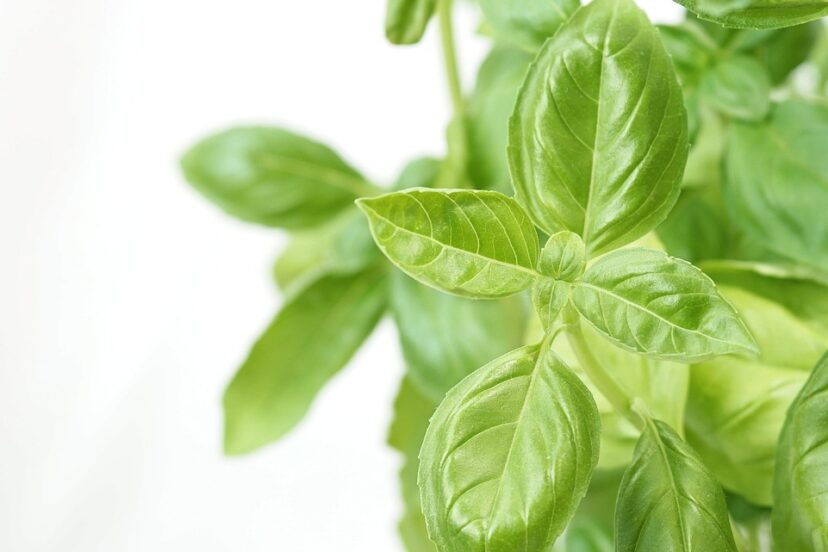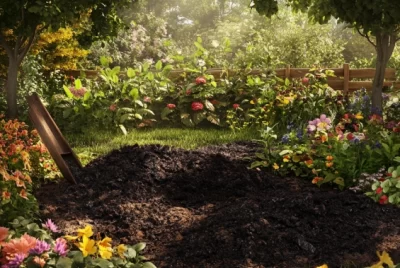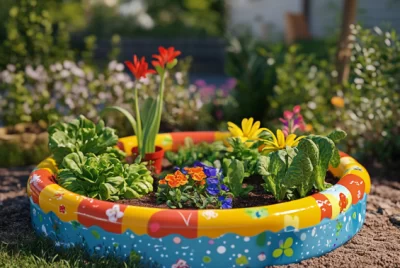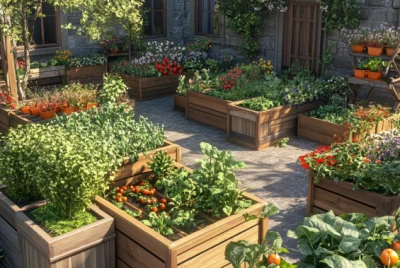A Hydroponic Herb Garden: A Great Way to Start Hydroponic Gardening
Have you ever considered a hydroponic herb garden? If not, you should. It is a good way to start with hydroponics because you can begin small and herbs are generally easier to grow.
Why Herbs?
Herbs are perfect candidates for hydroponic gardens. They’re generally easier to grow than fruits and vegetables, and who doesn’t love the aroma of fresh basil or the tangy kick of mint?
Benefits of a Hydroponic Herb Garden
Faster Growth
First off, hydroponic systems can make your herbs grow faster because the nutrients are more available to the plants. Secondly, you have more direct control over the administering of the water and nutrients so you will have more lush growth.
Year-Round Harvest
Can’t garden during winter? No problem. With hydroponics, you can grow your herbs indoors and have a year-round supply at your fingertips.
Water Efficiency
Hydroponics delivers the water directly to your plant’s roots instead of having much of it spread throughout the soil. In addition, hydroponics make it possible to reuse water, making it an eco-friendly option.
Challenges of a Hydroponic Herb Garden and How to Overcome Them
Setup Costs
Setting up a hydroponic system can be a bit pricey. But it is a long-term investment that can yield savings over time. Plus, DIY options can cut costs significantly.
Maintenance
Hydroponic gardening is not entirely hands-off. Regular checks on pH levels, nutrient concentrations, and light are crucial. But you won’t have to worry about weeds and the risk of getting pests in your herb garden is almost nil so there are trade-offs.
Pests and Diseases
Although the risks of pests are minimized, there is no guarantee that your plants will be safe from pests. Make sure to check for any unwelcome guests and tackle them head-on with natural solutions.
Setting Up Your Hydroponic Herb Garden
Choosing the Right System
From Deep Water Culture to Nutrient Film Technique, there are several hydroponic systems available. My recommendation? Start simple with a Wick System.
Selecting Herbs
Go for the easy wins first. Basil, chives, and mint are great starters.
Materials Needed for Your Hydroponic Herb Garden
Reservoir
Nutrient solution
Grow lights
pH meter
Step-by-Step Guide
Prepare the reservoir and fill it with nutrient solution.
Insert the plants into their respective spots.
Monitor and adjust light and pH levels.
Start harvesting when ready!
Maintaining Your Garden
Monitoring pH Levels
A simple pH meter can go a long way in maintaining a healthy garden.
Hydroponic Herb Garden Nutrients
These are your plants’ food. Make sure they get a balanced diet. Fortunately, there are many commercial foods available that are tailored to your plant’s requirements and there are organic formulations available if you want to go that route.
Light and Temperature
Plants like it not too hot, not too cold, but just right. Also, large temperature variations will not be good for your plants. Make sure to provide adequate lighting and keep temperatures consistent.
My Personal Recommendations for a Hydroponic Herb Garden
Best Herbs to Grow
- Basil: Versatile in the kitchen.
- Mint: Perfect for drinks and desserts.
- Oregano: An essential for Italian dishes.
Useful Tools and Add-Ons
- Automatic pH adjusters
- Timed grow lights
Conclusion
Hydroponic herb gardens are the future of gardening—efficient, eco-friendly, and downright magical. There are challenges, but the rewards are well worth it. So, what are you waiting for? Dive in and get your hands wet, metaphorically speaking!
Frequently Asked Questions
How often should I check pH levels?
At least once a week.
Can I mix different herbs in one system?
Absolutely, but make sure they have similar nutrient needs.
How much does a basic hydroponic herb garden cost?
You can start with as low as $50 for a basic DIY setup.
What are the signs of nutrient deficiency in a hydroponic herb garden?
Yellow or brown leaves and slow growth are common indicators.
Is it safe to use tap water in a hydroponic herb garden?
It’s best to use filtered water to avoid any potential imbalances in pH or nutrients.




